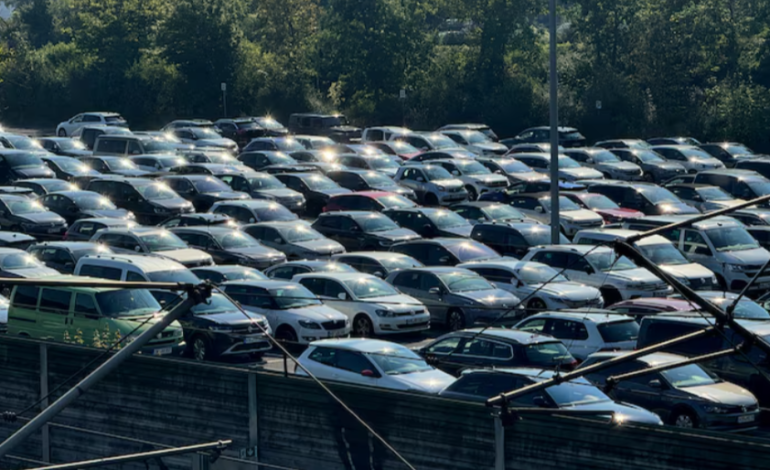New car sales in the European Union fell by 18.3% in August, marking their lowest level in three years, according to data released by the European Automobile Manufacturers’ Association (ACEA) on Thursday.
The downturn, driven by steep declines in major markets like Germany, France, and Italy, has raised concerns about the future of the region’s automotive industry.
One of the most significant drops was in the electric vehicle (EV) segment. Sales of fully electric cars plummeted by 43.9% in August, marking the fourth consecutive month of decline. Germany and France, the EU’s largest EV markets, were particularly affected, with EV sales dropping by 68.8% and 33.1%, respectively. Tesla also saw a significant drop, with sales down by 43.2%.
This sharp decline in both traditional and electric car sales reflects broader challenges for the European auto industry. Since the pandemic, car sales have failed to recover to pre-COVID levels, and automakers such as Volkswagen have warned that this trend could persist. The EV market, once buoyed by government incentives, is now feeling the impact of changing policies and economic difficulties.
While sales of fully electric and plug-in hybrid vehicles have fallen, the market share of hybrid-electric cars has increased by 6.6%, now accounting for 31.3% of total car sales in the EU. Buyers are increasingly opting for hybrids as a middle ground between combustion and fully electric vehicles.
Germany, the EU’s largest economy, has been hit particularly hard. EV sales in the country plunged by 69% in August to just over 27,000 vehicles, largely due to the end of government incentives for electric company cars last year. The German economy has also faced setbacks in its industrial sector, affecting automakers like Volkswagen and BMW, which have had to adjust production plans and cut earnings forecasts amid declining demand.
The broader economic landscape in Europe, including inflation and supply chain issues, is weighing on consumer demand for both traditional and electric vehicles. With government subsidies for EVs being reduced across the region, consumers are increasingly reluctant to purchase electric cars, which tend to be more expensive than combustion-engine models.
The decline in EV sales also poses a challenge for automakers in meeting upcoming EU emissions targets. Tighter fleet-emissions rules are set to take effect in 2025, and without a recovery in electric vehicle demand, companies like Volkswagen and Renault risk facing significant fines.
While countries like the UK saw a 10.8% rise in EV sales in August, it remains unclear whether the EU will be able to reverse the current downward trend. European automakers, represented by ACEA, have called on the EU to implement urgent relief measures before the 2025 CO2 targets come into effect, warning that without action, the industry faces job losses and weakened competitiveness in the global market.









